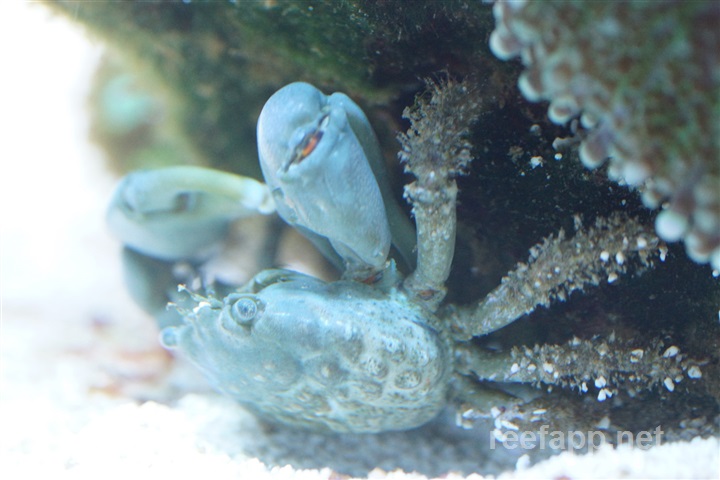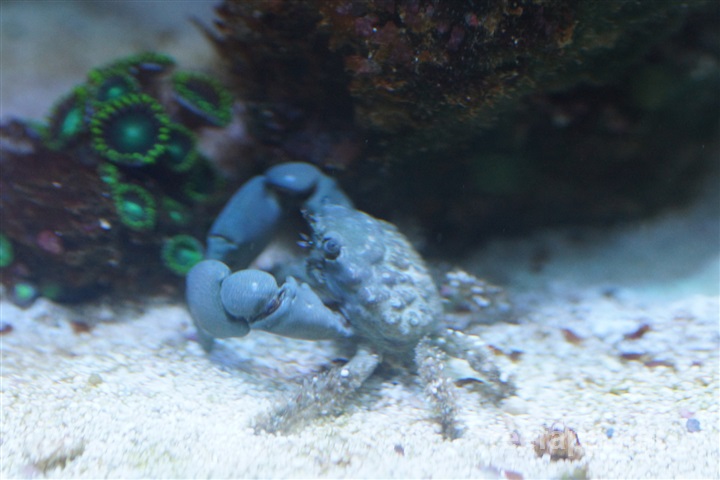Mithraculus sculptus


| Latin name | Mithraculus sculptus |
|---|---|
| Local name | Emerald/Mithrax Crab |
| Family | Majoidea - Mithraculus |
| Origin | West Atlantic |
| Max length | 4 cm (1.6") |
| Minimum volume |
50 l (13 gal) |
|---|---|
| Hardiness |
Hardy |
| Suitable for aquarium |
Suitable for most aquarium |
| Reef safe |
Always reef safe |
| Aggressiveness | Peaceful |
| Recommended |
Macroalgea (Eg. seaweed / nori) Microalgea (Eg. spirulina) |
|---|---|
| Mostly |
Detritus |
This species can be found nibbling soft coral and LPS if there is insufficient food available.
This species can eat large amounts of algae (relative to their size) from rocks, like green hair algae and filamentous algae.
As it doesn’t eat every algae type, in case of a specific algae plague, find out more precise information.
Most crabs are not wanted in coral aquaria, although there are a few which are either fun or useful.
James W. Fatherree. 2010. Aquarium Invertebrates: Crabs in the Marine Aquarium - Advanced Aquarist - (English)
Ronald L. Shimek. 2004. Marine Invertebrates (PocketExpert Guide) - TFH Publications / Microcosm Ltd. - (English)
Bob Fenner. Crabs For Marine Aquariums? Part 1, Part 2, Part 3 - Wet Web Media - (English)

